Yihui Baiying kidney knows Zhuo Jian 丨 Pfizer kidney cancer standardized diagnosis and treatment forum was launched to help improve the level of diagnosis and treatment of grassroots kidney cancer
Author:Cancer Channel of the Medical Time:2022.09.21
*For medical professionals for reading reference
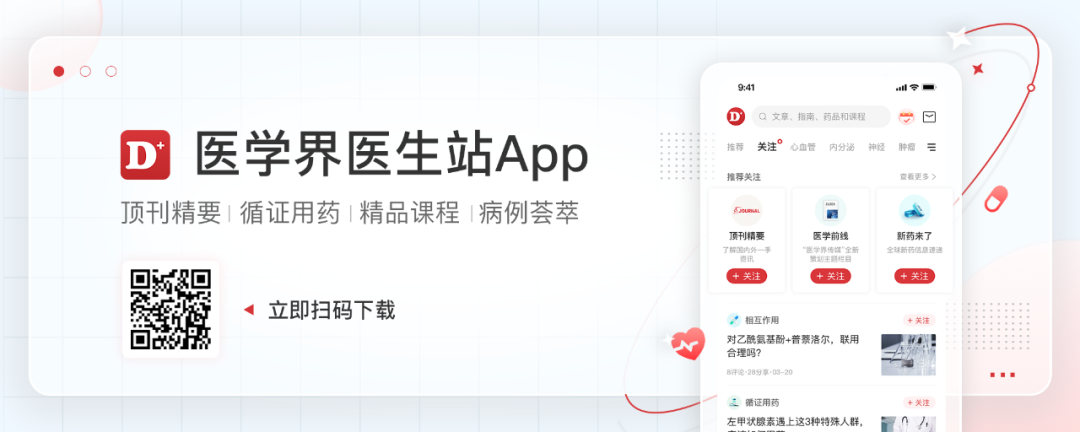
The first meeting of Pfizer kidney cancer standardized diagnosis and treatment forum was held, and experts participating in the meeting discussed the standardized diagnosis and clinical practice of kidney cancer.
In order to promote the development of China's kidney cancer standardized diagnosis and treatment, better meet the clinical diagnosis and treatment needs of patients with grass -roots kidney cancer, and help the realization of the great goal of "Healthy China 2030", on September 15, 2022, "Yihui Bai Ying Kidney knows" The first meeting of Pfizer Kidney Cancer Standardized Diagnosis and Treatment Forum was held. The conference was co -chairman of the conference by Professor Ji Zhigang of Peking Union Hospital and Professor Huo Lizhi, the Second People's Hospital of Liaocheng City, to open a platform for the linkage and exchanges of grass -roots experts and fields in the field.
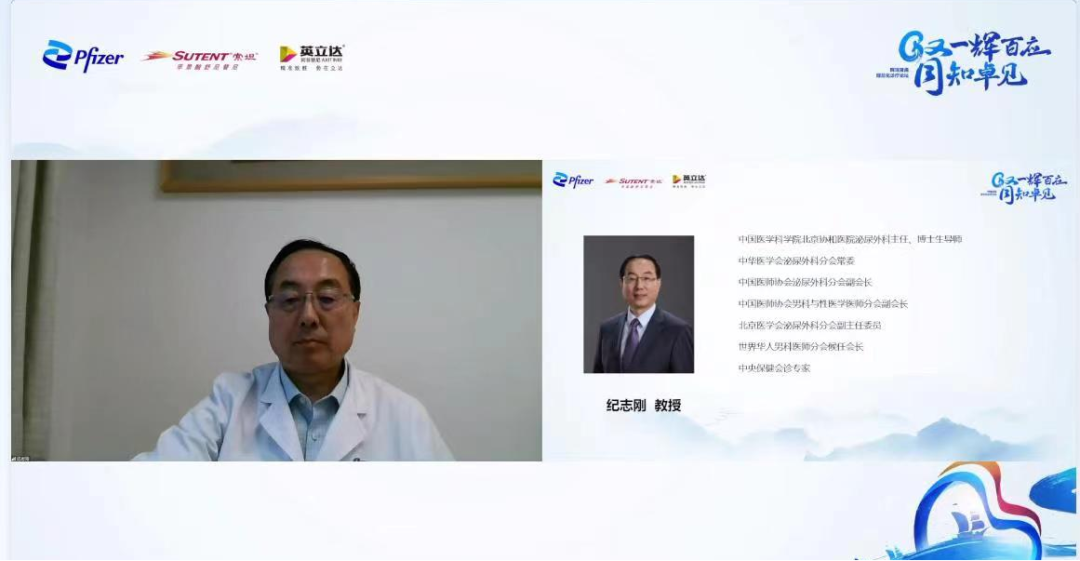
Professor Ji Zhigang

Professor Huo Lizhi

Launching Ceremony
Mr. Zhang Jianhui, general manager of Pfizer China Vast Marketing Division, also gave a speech for the conference, thanking the participating experts to pay attention to and promote the development of the standardized diagnosis and treatment of kidney cancer in China, and to meet the huge efforts and contributions to meet the clinical treatment needs of patients with kidney cancer. Pfizer has always been committed to "becoming an important part of the Chinese medical and health system" and strengthened the ability of grassroots medical services. In the field of kidney cancer, Pfizer will continue to invest, and together with online experts to improve the precise diagnosis and standardized treatment level of kidney cancer, and help the realization of the grand goal of "healthy China 2030".

Mr. Zhang Jianhui
CHAPTER1 Big Coffee Frontier Interpretation
Professor Sheng Xinan: 2022 CSCO kidney cancer diagnosis and treatment guidelines for update and interpretation
Professor Sheng Xinan of Peking University Cancer Hospital brought an analysis of the key points of the 2022 version of the China Clinical Oncology Society (CSCO) kidney cancer diagnosis and treatment guide. Professor Sheng pointed out that in the diagnosis, it is recommended to classify the pathological classification of the 5th edition of the 5th edition of the renal cancer in 2022; in the surgical treatment section, with the advancement of early diagnosis and early screening, the staging of initial renal cancer is improved. Patients with phase T1B renal cancer are treated separately to carry out surgery of renal units more actively; in the internal medicine treatment section, the 2022 version and 2021 guide have not changed significantly compared with the 2021 version. High -risk) for different categories of treatment. For example, in grass -roots hospitals, the first -line treatment of low -risk people can prefer targeted therapy; if patients are allowed and doctors have rich experience, they can also choose immune combined therapy. Professor Sheng Xinan also shared some controversial topics in the treatment of kidney cancer in combination with the latest research progress.
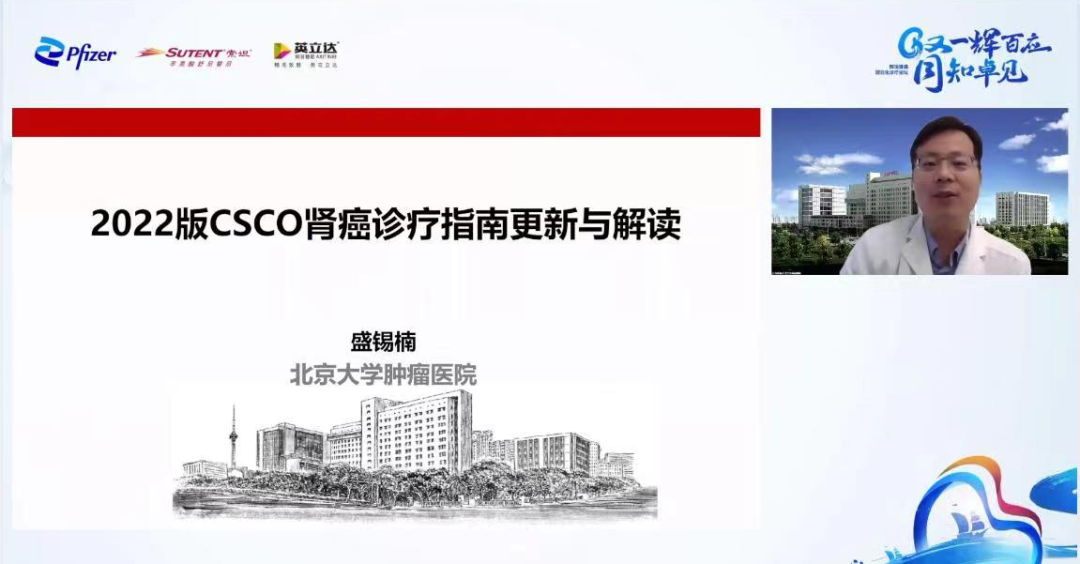
Professor Sheng Xinan
Under the interpretation of Professor Sheng, Professor Jiao Haibo, Dashiqiao Central Hospital, Professor Sun Fuxiang of Huanghua People's Hospital, Professor Tang Sumei of Huadian People's Hospital, Professor Wu Liwei of Dingzhou People's Hospital, Professor Wang Yanli, Second Central Hospital of Baoding City, Langfang No. 4 Professor Zhao Hui of the People's Hospital has published his experience in clinical practice on kidney cancer diagnosis and treatment, and discussed the problems encountered in clinical practice:
In clinical practice, clinicians respond to patients for precise stratification management, thereby minimizing the treatment of toxic and side reactions as much as possible, and improving the quality of life and survival benefits of patients.
For patients with low -risk patients with advanced renal cancer, preferred targeted therapy is recommended, especially in grass -roots hospitals, targeted therapy may be more advantageous in terms of safety; if you want to use immunogenic treatment, you should strengthen the prevention and management of toxic and side -to -side reactions prevention and management. Pay attention to, and make full communication with the patients and family members, so that the patients benefit to the greatest extent.
The treatment of kidney non -transparent cell carcinoma is still difficult. Generally speaking, Schunitinib's evidence -based medical evidence is more sufficient. It is recommended as one of the preferred targeted therapy options. Agini as the first -line TKI treatment failed after the failure of the first TKI treatment. Preface treatment continues to benefit. In terms of different subtype types, such as TFE-3 gene fusion correlation with renal cancer and FH defective kidney cancer, you can consider choosing targeted combined immunotherapy.
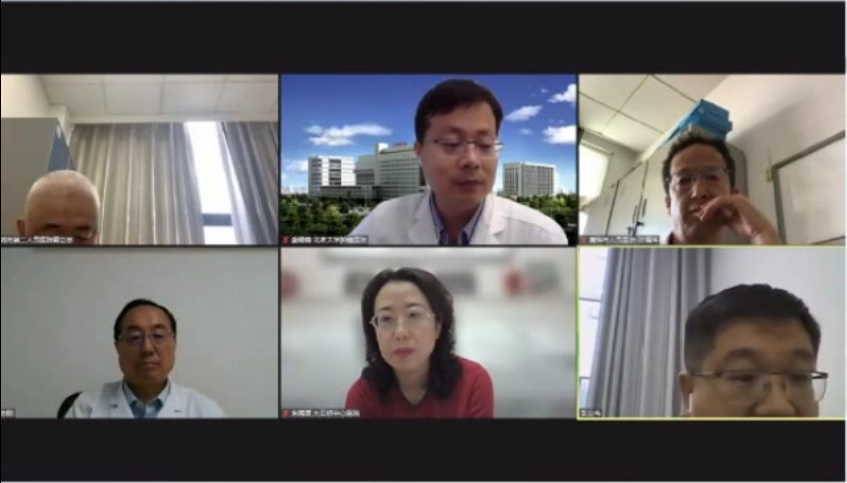
Discussion session
Professor Xia Qinghua: The latest progress and trend of kidney cancer diagnosis and treatment
Professor Xia Qinghua of Shandong Provincial Hospital shared the latest progress and trends of kidney cancer diagnosis and treatment, emphasizing the importance of the entire management of kidney cancer diagnosis and treatment, and conducted a warm discussion with Professor Wang Haixin, Professor Wang Haixin of Yankuang New Mileage General Hospital, and Professor Wang Xiaoqiang of Shouguang People's Hospital, and pointed out The
Target -free combination for advanced renal cancer first and second -line therapy can bring obvious survival benefits to patients. With the popularization of new targeted or immunotherapy drugs in primary hospitals, more and more patients will benefit.
Patients with kidney cancer who infringe on kidney or kidney sinus fat are usually T3 or T4 stage, which is a high -risk population. If the patients generally have good conditions, it is recommended to treat it.
For patients with renal cysts, patients with cystic kidney cancer are recommended for cystic renal cancer, it is recommended to perform radical resection as soon as possible; if the degree of malignancy is low, you can also choose to observe and observe targeted and immune assistance.
Disclaimer: The sharing and discussions involved in the meeting are only for education and exchanges, and do not involve consultation and intervention diagnosis and treatment. Relevant diagnosis and treatment decide by the doctor independently based on the patient's situation.
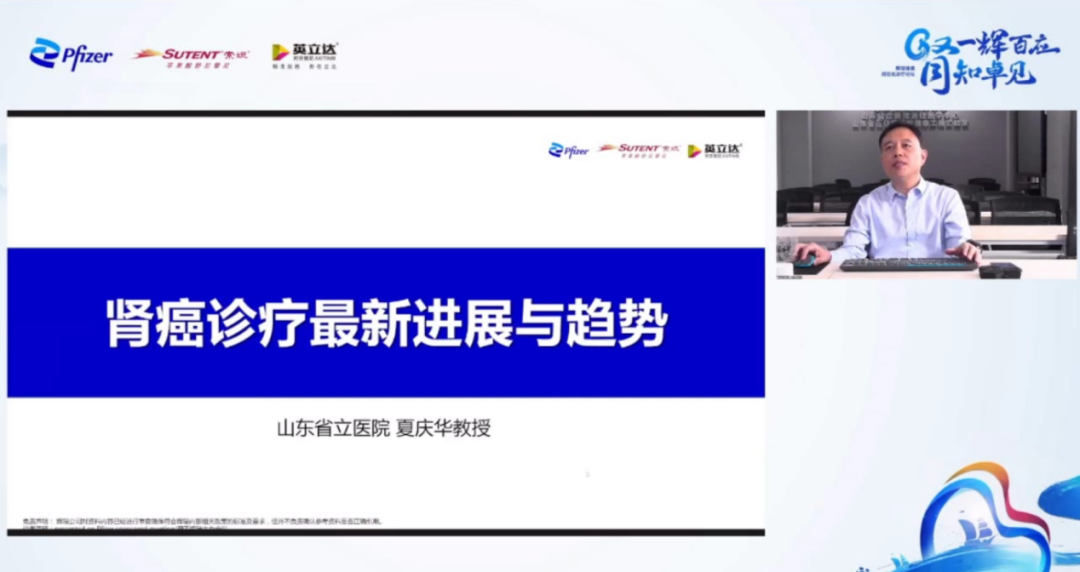
Professor Xia Qinghua
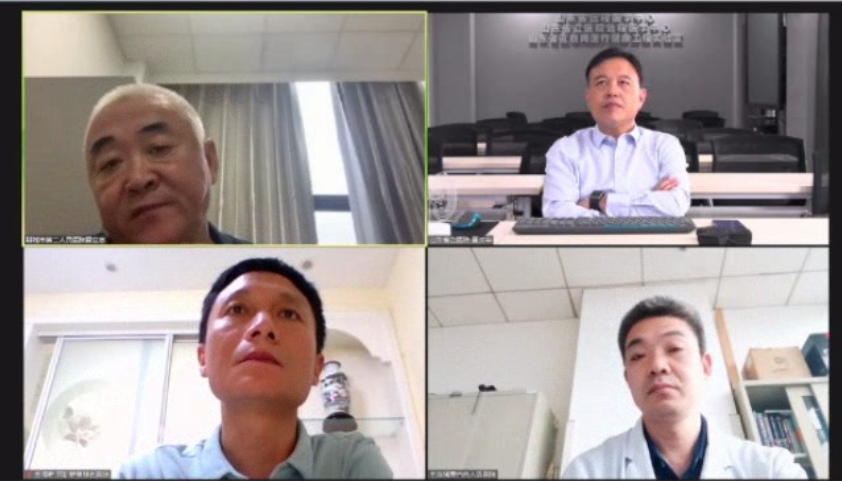
Discussion session
Chapter2 grass -roots practice sharing
Professor Wang Peng: Share of advanced renal cell carcinoma cases
Professor Wang Peng, Weifang Yidu Center Hospital, brought a case of advanced renal cell carcinoma system. In April 2021, the patient had a consultation with "no obvious causes of back pain, nRS = 1-3 points, and aggravated". CT brain+thoracic and abdomen reinforcement CT, vertebral puncture pathological biopsy, left renal clock puncture and other examinations. The preliminary diagnosis is left renal transparent cell carcinoma (CT1BN0M1 IV stage, IMDC low -risk), T8 accessories, right sides of iliac bone metastasis, Double lung metastasis is to be arranged. From June 2021 to August 2021, patients were treated with first-line treatment to receive oral Schonidinib (50mg QD D1-28 Q6W), and Herohic acid had no obvious side effects. Subsequently, the patient's condition made progress, and further diagnosed with left renal transparent cell carcinoma with chest 8 attachments, right skeleton bone, waist 4 vertebral body, bioconent, and liver metastasis (CT1BN0M1 IV stage). Patients with second -line therapy receives Agetinib+Schideli Midumi (200mg Q3W) and sodium Ibasotraotate, and the efficacy evaluation on October 29, 2021 is stable (SD), and the efficacy evaluation on January 26, 2022 is the evaluation of efficacy as the efficacy. Partial relief (PR). At this time, the condition changes, that is, the new leisure of the left lung leaf. Imaging examination shows that the new section of the back lung of the left lungs is increased by a new section of the base section. The lesions in the lungs continued to shrink compared to before, so they were considered mechanized pneumonia. Patients continue second -line treatment in accordance with the previous plan. On March 14, May 11 and August 1, 2022, the efficacy evaluation was PR. Patient's imaging examination shows G1 immune pneumonia, but because there are no symptoms, they choose to continue observation.
Professor Wang Peng
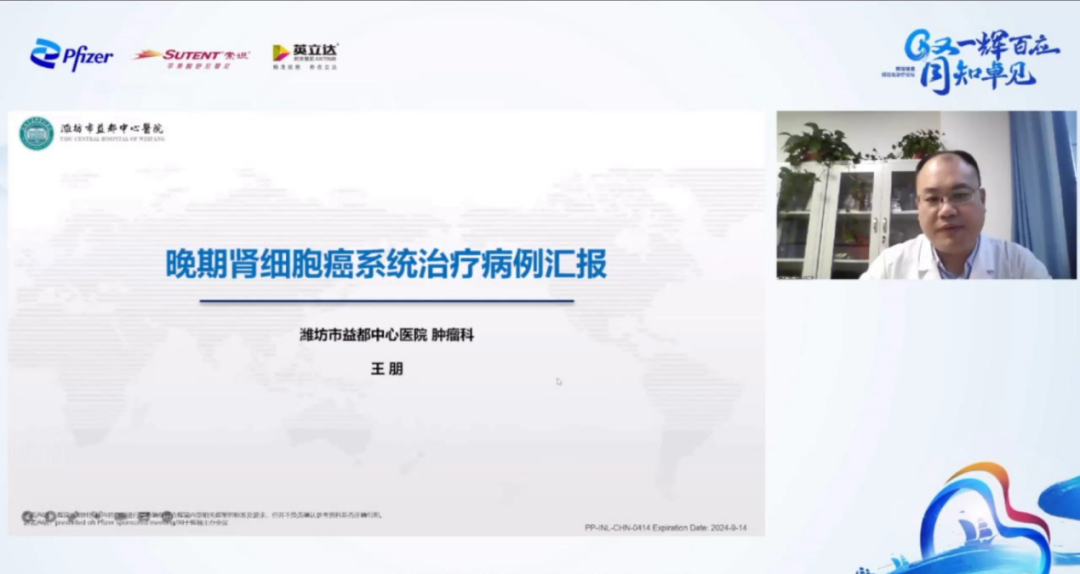
Professor Liu Xiguang, Professor Wang Haixin, and Professor Wang Xiaoqiang of the Affiliated Hospital of Qingdao University expressed their views on the diagnosis and treatment process of the above cases, and expressed their opinions on topics such as "the significance of" advanced renal transparent cell carcinoma "," level 1 immune pneumonia, whether immunotherapy continued "and other topics:
The significance of the existing guidelines and research on the reduction of tumor reduction in advanced renal transparent cell carcinoma still controversy. In clinical practice, it can comprehensively determine whether the tumor reduction is performed based on the patient's tolerance and willingness.
The immune pneumonia of the above cases is relatively slow. It can be considered to follow the follow -up observation of patients while continuing immunotherapy. At the same time, patients should be told to pay attention to whether the symptoms of immune pneumonia will occur. As a result, the follow -up treatment is decided.
Discussion session
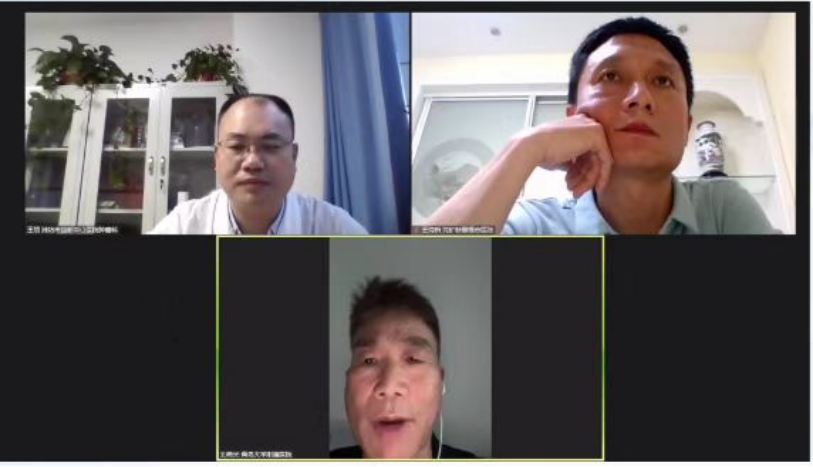
In the end, Professor Ji Zhigang and Professor Huo Lizhi summarized the conference. From the perspective of the interpretation of the guide, cutting -edge progress, clinical practice and other perspectives, this meeting conducted a comprehensive discussion on the standardized therapy of kidney cancer. In the future, we hope that everyone will have richer practical experience exchanges. dialogue.
Chapter 3 The next event trailer
The second meeting of "Yihui Bai Ying Kidney Knowledge" Pfizer Kidney Cancer Standardized Diagnosis and Treatment Forum is planned to be held on October 18, 2022. Professor Wang Xiang of the First People's Hospital of Shanghai Jiaotong University and Professor Mao Weidong of Jiangyin People's Hospital will be chairman of the conference. They will continue to conduct academic exchanges for standardized diagnosis and treatment of kidney cancer through online special lectures and discussions. Looking forward to the next issue with experts and scholars in the field of kidney cancer.
Pp-inl-chn-0415 expiration date: 2024-9-20

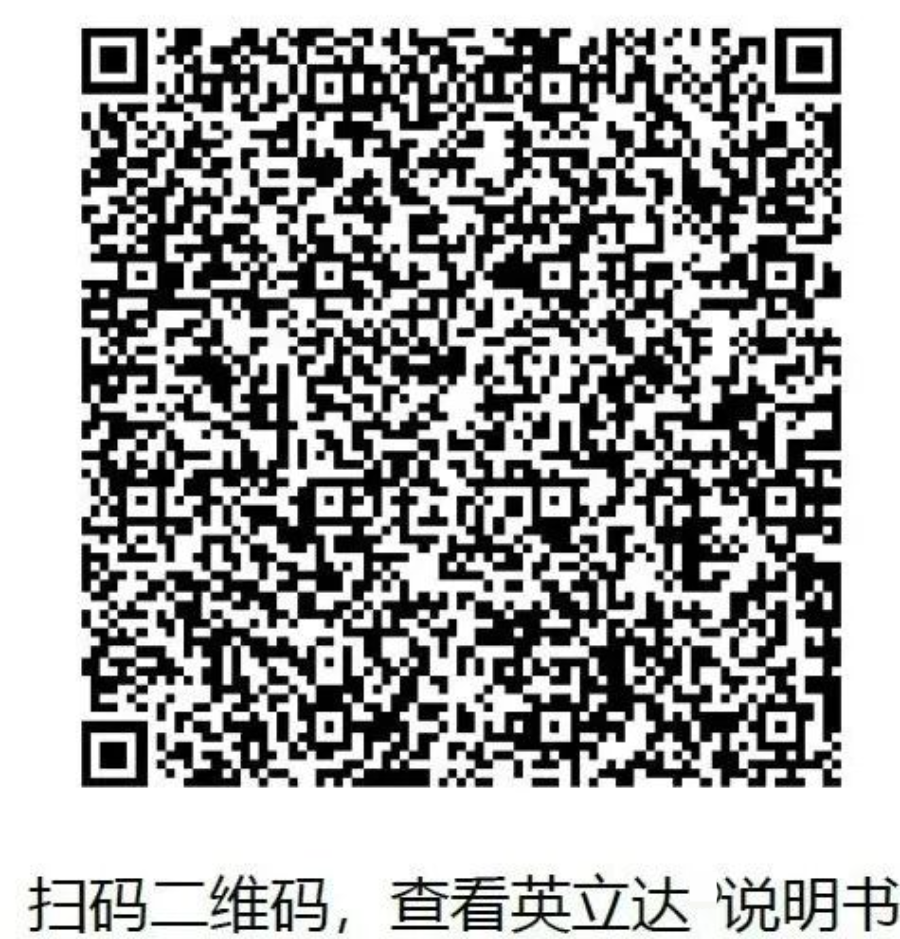
*This article is only used to provide scientific information to medical people, and does not represent the viewpoint of this platform
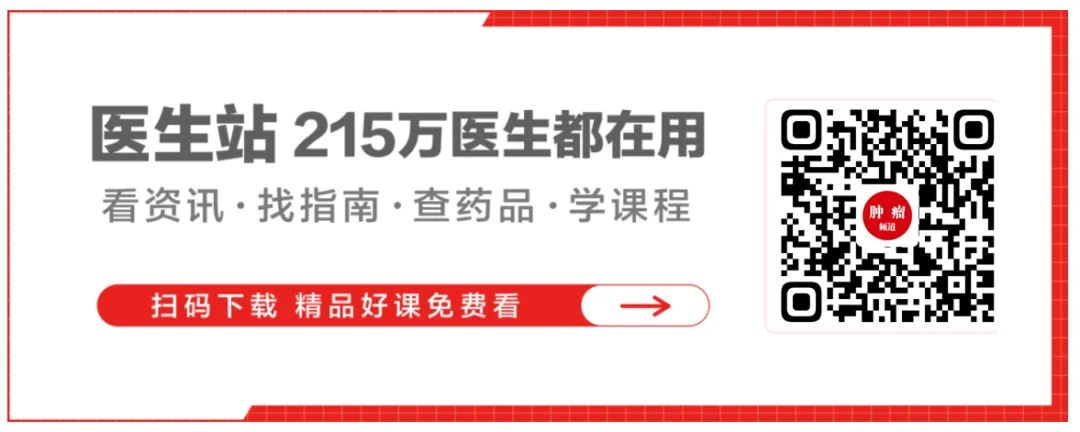

- END -
@Shenzhen, during the epidemic, this phone is very important, you must answer it!
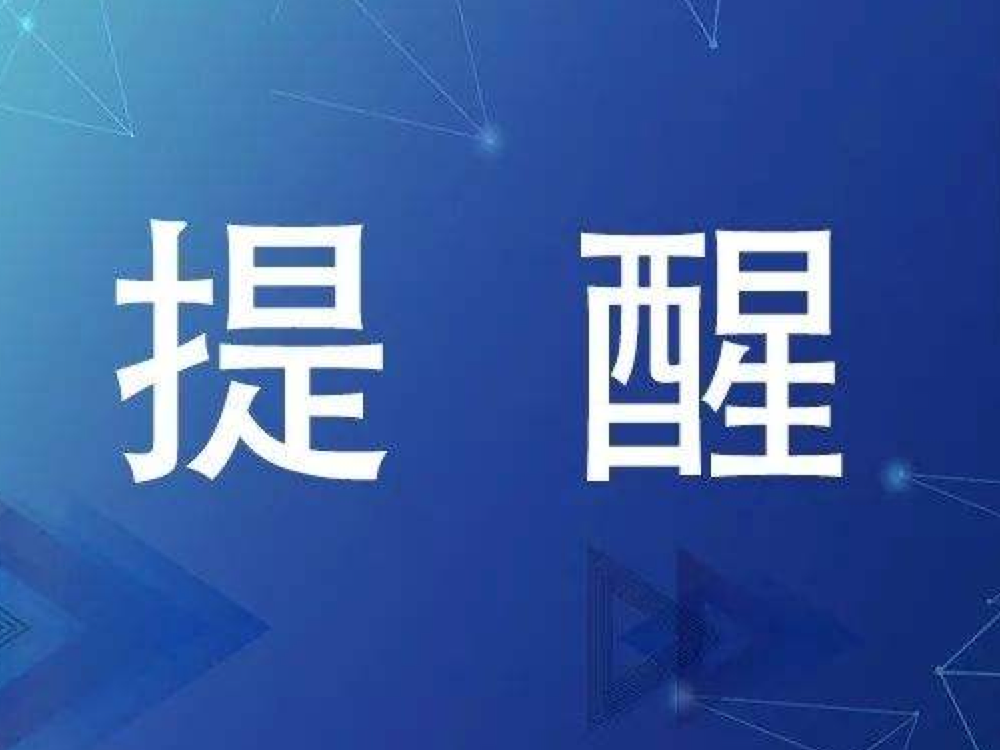
Hello, hello, we are the street epidemic prevention and control staff. Check it wi...
Encourage chain companies to innovate and ensure the quality and safety of drugs
In order to continue to optimize the business environment and stimulate the vitality of the pharmaceutical retail market, a few days ago, the Municipal Market Supervision Bureau organized a meeting to